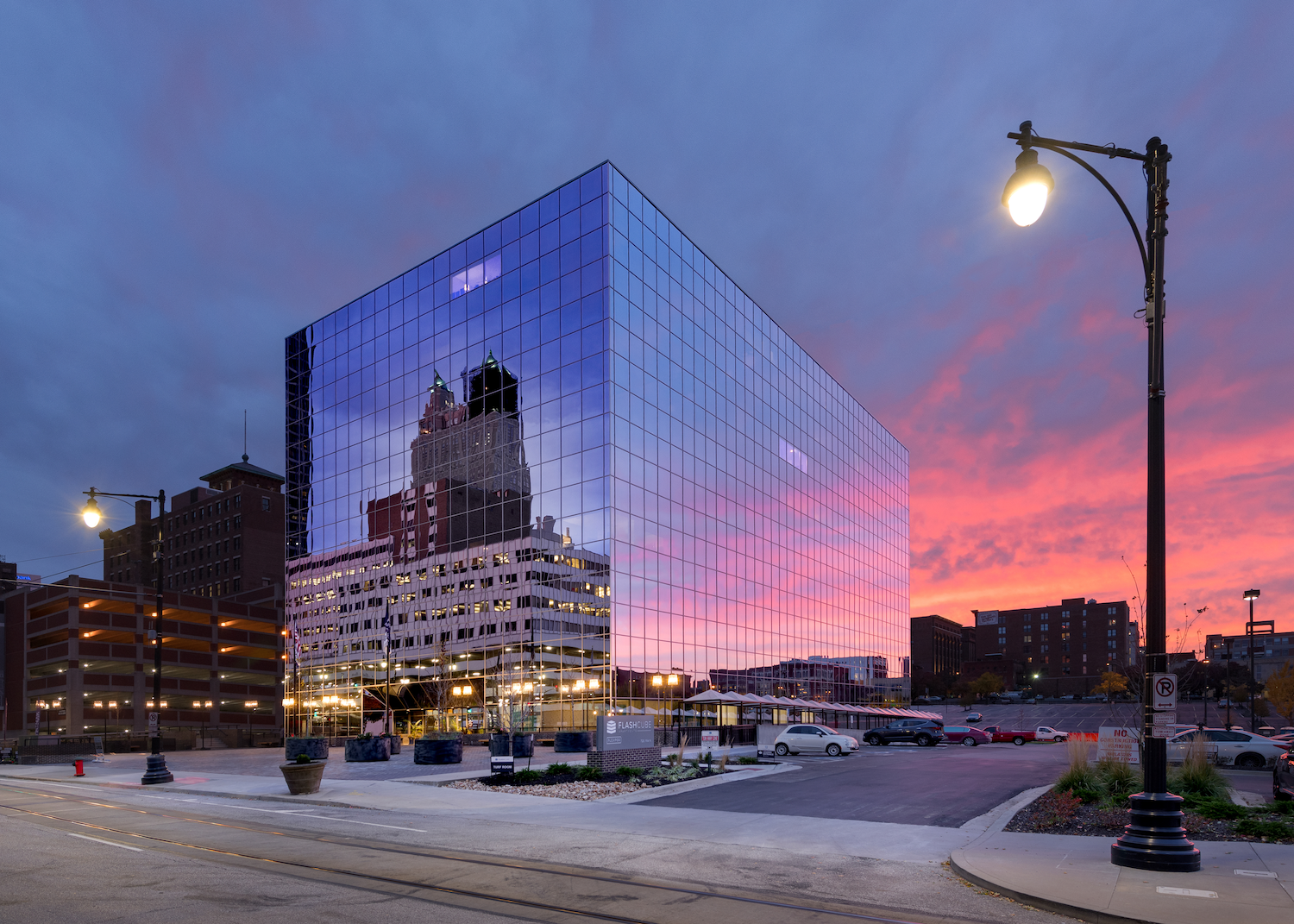Feature photo credit: KC Power & Light District.
Cost savings and innovations moving KC forward
At the January KC Downtowner's event, Stan Meyers, president of the KC Downtowners and client development manager at Terracon, recognized Bob Kendrick, president of the Negro Leagues Baseball Museum, as the 2021 Jim Davis Award recipient. KC Downtowners established the Jim Davis Award in 2009 to honor a prominent downtown contributor. Photo courtesy of KC Downtowner's/Negro Leagues Baseball Museum.
Flashback to the amazing Flashcube transformation
Build KCI to showcase Kansas City with art, tech and amenities
Connecting KC metro to the rest of the world
May 12, 2021 was KC World Trade Day, and the KC Downtowners celebrated the occasion by featuring Melissa Miller, director of World Trade Center Kansas City (WTCKC), as the virtual speaker.
The meeting also marked the transition of KC Downtowners leadership from outgoing president, Kim Gile, community reference manager, Kansas City Public Library, to incoming president, Stan Meyers, client development manager at Terracon.
WTCKC, established in 1990, is part of a network 330 world trade centers located in more than 90 markets around the world, considered to be the largest global trade network. Greater Kansas City Chamber of Commerce holds WTCKC’s license and is one of only three chambers of commerce in the United States to operate a licensed world trade center.
“Our mission is to facilitate international trade in Kansas City by connecting, educating and providing resources and services to the regional business community,” said Miller.
Miller said WTCKC covers the Kansas City metropolitan statistical area comprised of 14 counties across the bi-state region; however, WTCKC has a secondary territory that extends further. The nearest world trade center is in Rogers, Ark. to the south. There also is a world trade center in St. Louis to the east, Denver to the west and none between Kansas City and Winnipeg, Manitoba to the north.
Miller said WTCKC helps businesses of all sizes, types and industries. To access the resources of WTCKC, a business does not have to be a KC Chamber member.
Some of the services which WTCKC provides are market and industry briefings and trade education. WTCKC brings in market experts, dignitaries, ambassadors and service providers who specialize in a specific area of international trade to discuss opportunities that they are seeing, market trends and other topics that Kansas City businesses need to know to perform successfully on the global stage.
As of 2019 (2020 numbers are not available yet), the Kansas City metro area was the 45th largest metro exporter, with $7.7 billion worth of goods exports. Miller noted that the 44 markets above Kansas City are largely located on the coastal regions of the United States, the Gulf region, the Great Lakes region or in major air cargo hubs.
“So it’s a lot of where those goods are leaving the United States,” Miller said.
Miller said Kansas City, at 8.6% of export share of GDP, trails the national average which is approximately 10%. The largest markets to which Kansas City area businesses export are Canada and Mexico.
Why does Kansas City need to be global?
“From a business perspective, you can weather an economic downturn better. It’s that old adage--don’t put your eggs in one basket. Businesses that export spread the risk over several markets. So if one market’s not doing particularly well, you’ve got another market that you can rely on to help offset that,” Miller said.
Exporting also helps some businesses minimize seasonal fluctuations, said Miller. For example, a ski gear manufacturer may not make many sales in July, but while it’s summer in the US, it’s winter in the southern hemisphere.
“So that’s another market that you could go sell those products to keep it moving year round so you’re not relying on one market, one season,” Miller said.
Kansas City perceived as a global city is more attractive to site selection committees for large conferences, trade events and sporting attractions like the FIFA World Cup. It also helps attract global talent to Kansas City and increase tourism.
On the global stage, Kansas City is a learning hub. Miller pointed to the Kansas City Animal Health Corridor. Companies are moving to Kansas City not just from other US cities, but from around the world to be part of the Animal Health Corridor, which represents 56% of total animal health, diagnostics and pet food sales.
Miller said there are 238 Kansas City companies that have overseas offices in 75 countries around the world. Kansas City also boasts 1,135 foreign owned companies, not including branch locations.
The metro area has 34 sister-city relationships, 12 of which are solely with Kansas City, Mo. There are 21 foreign consulates located across the metro area, and in 2017, Kansas City was designated a UNESCO Creative City of Music.
In addition, the United States Army Command and General Staff College at Fort Leavenworth, Kan. has an international military program that has graduated 8000 officers from 164 countries, many of whom end up as heads of state.
“It’s in our benefit to be a global city, to be connected with the rest of the world,” Miller said.









